MA in Clinical Psychology
Foster individual positive change as a licensed therapist.
LMFT Preparation with Impactful Training Psychotherapists are professionals committed to helping others achieve psychological and emotional well-being and overall quality of life. Antioch University Santa Barbara’s Award-winning Master of Arts in Clinical Psychology program emphasizes authentic relationships and an understanding of diverse identities and perspectives, qualifying you to become a Licensed Marriage and Family Therapist (LMFT) and/or Licensed Professional Clinical Counselor (LPCC). At the core of our MFT graduate degree program is a strong emphasis on supporting positive individual, family, couple, and group change within the greater context of diverse communities and with an eye toward social justice. Within the program, students can also choose from two optional concentrations in Latinx Mental Health or Somatic Psychotherapy. The evolving world of psychotherapy has reached unprecedented demands for qualified practitioners offering therapy and assessment, supervision, management, applied research, administration, and public policy. Our experienced faculty find themselves with a wealth of opportunities in their fields, having experienced a strong real-world experience in the classroom, through an experiential learning model attending to serving diverse populations. As a full-time MACP student, you could attend classes one day per week and complete the program toward an MA in Clinical Psychology in just two years.
This degree is offered by Antioch University's Santa Barbara Campus.
Program Overview
The MA in Clinical Psychology degree provides students with a community-based, holistic approach to psychotherapeutic practice. You will gain practical and theoretical knowledge for a sustainable and successful career within varied practice contexts with skills to work with diverse client needs and perspectives. Graduates of the MACP program and its concentrations complete the academic requirements for LMFT licensure in California (with optional courses for LPCC licensure) while gaining the necessary preparation for academic coursework and local community traineeships.
Winner of the 2016 CAMFT Outstanding School Award
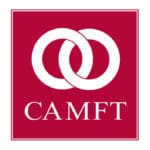
Additional Information
This program is designed to lead to state licensure.
The MA in Clinical Psychology program can be completed in a minimum of 8 quarters (24 months) of consecutive, full-time study in a one-day-per-week schedule. The MA in Clinical Psychology is a 90-quarter unit program. Depending on optional concentrations and LMFT/LPCC track, additional units may be required. All MACP concentrations meet California licensing requirements for Marriage and Family Therapists (MFTs). To complete the degree, a student must meet both a unit requirement and practicum (traineeship) requirements.
Residency is defined as the number of quarters of study for which a student must be enrolled. In the MACP program, students must be enrolled for a minimum of 90 units and 8 full-time quarters, or the equivalent. Some of the coursework requirements are satisfied through weekend courses or may be completed online. A full-time quarter consists of 10-15 units. All quarters of residency must be completed for graduation.
Students also have options to pursue their Master’s in Clinical Psychology Degree with a concentration in Latinx Mental Health or Somatic Psychotherapy. The Program also offers a track for students interested in meeting qualifications for Licensed Professional Clinical Counselor (LPCC) licensure or a dual track for LMFT/LPCC.
Students must complete their degree within 5 calendar years of the first admission, including any leaves of absence or periods of withdrawal. Students are able to transfer up to 9 units of graduate psychology courses taken elsewhere if they meet Antioch University’s requirements for transfer credit. Units must be current and no older than 5 years. To apply for transfer credit, obtain the Permission to Transfer Units Form from the Registrar’s Office.
First Quarter:
- Theories of Psychotherapy in Context
- Human Development and Diversity
- Multicultural Awareness: Self, Culture, and Context
- Crisis, Disaster, and Emergency Response *
Second Quarter:
- Research Methods
- Psychopathology *
- Clinical Skills I: The Psychotherapeutic Relationship
- Contemporary Theories of Psychotherapy
Third Quarter:
- Lifespan Human Development: The Older Adult *
- Theories of Family Systems
- Clinical Skills II: The Psychotherapeutic Process
- Professional Ethics and the Law
Fourth Quarter:
- Clinical Skills with Families and Couples
- Psychological Assessment *
- Group Theories
- Domestic Violence: Spousal, Elder, and Child Abuse
- Practicum: Professional Orientation
Fifth Quarter:
- Practicum I: Clinical Evaluation and Crisis Intervention
- The Process of Group Psychotherapy
- Intimate Relationships
- Psychopharmacology for Therapists *
Sixth Quarter:
- Practicum II: Treatment Planning and Clinical Interventions
- Psychotherapy with Children and Adolescents
- Loss and Bereavement -w-
- Substance-Related Disorders and Other Addictive Behaviors
Seventh Quarter:
- Practicum III: Case Conceptualization
- Clinical Skills in the Multicultural Context
- Trauma Counseling
- Advanced Family Therapy: Special Populations -w-
Eighth Quarter:
- Practicum IV: Integrating Clinical Skills
- Advanced Family Therapy: Evidence-Based Practice *
- Human Sexuality and Counseling
- Community Mental Health
- Dual Diagnosis: Substance-Related and Co-Occurring Disorders *
Optional LPCC coursework:
- Evaluation Outcome and Research *
- Social and Cultural Factors of Assessment and Evaluation *
- Career Theories and Practices I
- Career Theories and Practices II *
- Psychopharmacology for Therapists *
* = online/hybrid or weekend w = weekend only View the course sequences for the MACP concentrations in Latinx Mental Health and Somatic Psychotherapy.
Students in the core (non-concentration) MA in Clinical Psychology Program gain professional skills toward competency in psychotherapeutic diagnosis, treatment planning, and counseling for individuals, couples, and families.
Board of Behavioral Sciences Educational Requirements
Students awarded the MA degree in Clinical Psychology from Antioch University meet the Board of Behavioral Sciences (BBS) curriculum requirements for licensure as a Marriage and Family Therapist (LMFT) in the State of California. Students interested in licensure in a state other than California should contact that state’s professional licensing body for information on academic and clinical training requirements for licensure in that state. Although our accredited degree generally meets out-of-state requirements, most states have specific course or training requirements unique to that jurisdiction. BBS regulations specify the coursework and professional training experience that must be completed within a 90-unit degree. Degree requirements for all students include 225 hours of face-to-face clinical training experience. Students enrolled in the Latinx Mental Health Concentration must complete 75 clinical training hours in face-to-face contact and/or client advocacy with Latinx or Hispanic clients. Students awarded the MA degree in Clinical Psychology from Antioch University will have met the California BBS curriculum and training requirements leading up to licensure.
Personal Psychotherapy Requirement
The Psychology Program requires all students in the Clinical Program to engage in personal therapy. This requirement is based upon the belief that psychotherapy is a vital component of the training and growth of psychotherapists and that it is the professional responsibility of every therapist to identify, address, and work through personal issues that may have an impact on clinical interactions with future clients. Graduate students in the MACP program are required to complete 20 hours of personal individual, couples, family, or group therapy during the course of the program and must begin before the end of their second quarter. This requirement is met by seeing a Licensed Marriage and Family Therapist (LMFT), a Licensed Clinical Social Worker (LCSW), a Licensed Psychologist, or a Board Certified Psychiatrist. A completed Psychotherapy Documentation form is filed with the Office of Student Services to verify the completion of the personal psychotherapy requirement. Psychotherapy hours earned prior to beginning the program are not eligible for meeting this requirement. Students are advised to plan for this requirement and to complete their hours early in their enrollment in order to finish prior to graduation.
Clinical traineeships are an integral component of the MACP program. These experiences prepare students for psychotherapy and counseling work, and the training is completed under the supervision of a licensed professional. The clinical training portion includes:
The Latinx Mental Health concentration requires that 75 of the 225 client hours include in-person contact and/or client advocacy with Latinx or Hispanic clients.
225 hours of face-to-face counseling experience with individuals, couples, families, and/or groups are required.
Faculty Spotlights
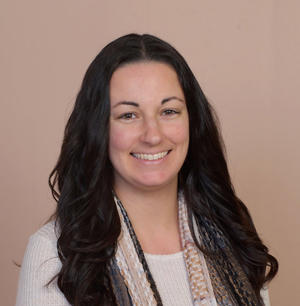
Gina Grujovski
Adjunct Faculty
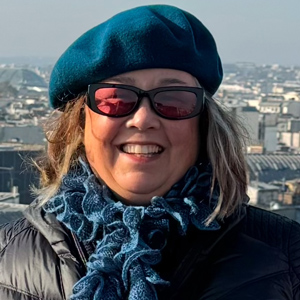
Angela Mohan, LMFT
Adjunct Faculty
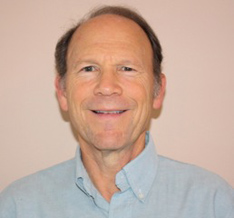
Andrew Teton
Adjunct Faculty
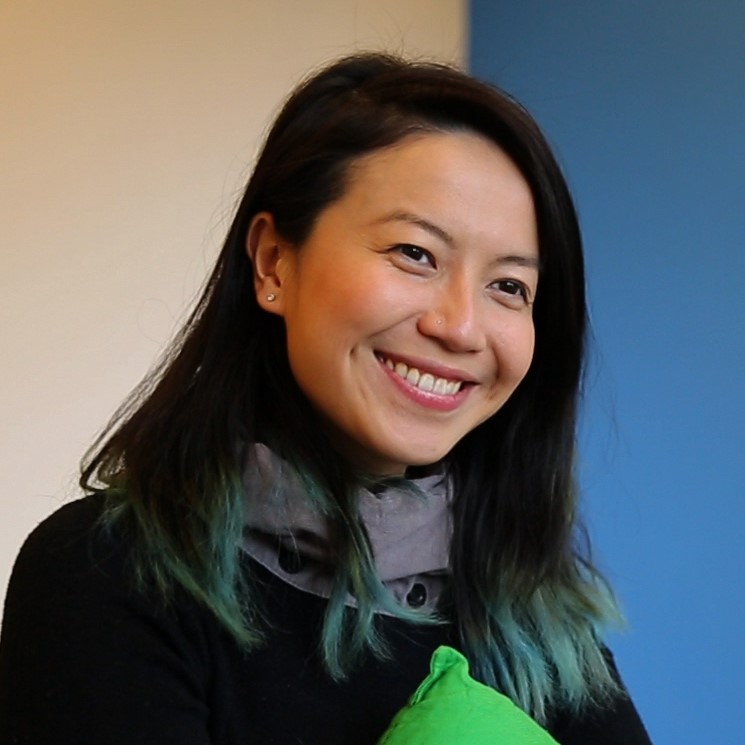
Hang Yin Candy Lo, MA
Adjunct Faculty
Admissions / Cost / Aid
Admissions
Application Deadlines
| Term | Priority Deadline | Final Deadline |
|---|---|---|
| Fall | February 1 | July 15 |
| Spring | August 1 | January 15 |
| Please review the Academic Calendar for additional details. | ||
AUSB practices rolling admission. Completed applications are reviewed on an ongoing basis, and admission decisions are provided promptly. International applicants are encouraged to apply by the Priority Deadline.
Application Requirements
- Complete the online admissions application.
- Official transcript indicating Bachelor’s degree from a regionally accredited college or university
- One essay
- Two letters of recommendation
- The program does not require that applicants submit GRE scores.
Admission Review Process
Phase One
An application will be reviewed once the above application requirements are received. The Admissions Committee will then determine applicants to move on to the interview stage.
Phase Two
Upon recommendation from the Admissions Committee, an applicant is scheduled for an interview. The interview is conducted virtually in a group format and lasts approximately 1 1/2 hours.
Phase Three
Upon successful completion of the interview and recommendation from the program, the applicant is notified via email of an offer of admission. Additionally, applicants who are not granted admission will be notified via email as well. Antioch University Santa Barbara particularly seeks qualified candidates who will contribute to building a student population diverse in gender, ethnicity, age, class, physical abilities, learning styles, sexual orientation, professional backgrounds, and community experiences.
Cost
| Item | Cost |
|---|---|
| Tuition Per Quarter Credit | $776 |
| Quarterly International Student Fee | $200 |
| All Students-General Fee, (technology, electronic library, student activity) | $100 |
| Program Materials fee (first quarter only) | $30 |
| Tevera® Clinical Training Software Signup Fee | $220 |
| MACP Program: Quarterly Liability Insurance Fee | $15 |
| Late Registration Fee | $100 |
| Transcript/Transcript & Assessments Fee | $10/$15 |
| Late Payment Fee | $50 |
| Return Check Fee | $50 |
| View the Cost of Attendance Components | |
Please note: Additional fees for all AUSB programs may include (but are not necessarily limited to) charges for materials, late registration, enrollment maintenance, parking, graduation, transcripts, tuition payment plan, late payments, late registration, and returned checks. LEARN MORE
Financial Aid
A majority of AUSB students finance their education through some form of financial aid. You may not be sure which federal, state, public, and private aid packages – such as loans, scholarships, and grants—are right for you. Our staff is here to help you, so you can focus on what’s most important: beginning your academic program at AUSB. LEARN MORE
BA-to-Grad Pathway
Eligible Undergraduate students can “fast track” their MA in Clinical Psychology by applying for admission through one of AUSB’s Pathway programs. Those accepted receive grants applied toward BA tuition. Learn more about our BA Pathway programs.

Start your Antioch Journey
Take your next step - talk to our admissions team to find the right program for you.
